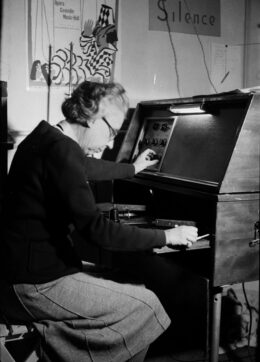
Typed or electronic text with handwritten annotations
54 pages
Author(s)
Lully enfant prodige
The issue of access to musical education was very important for Laure Choisy, a composer and violinist who had taken on the initiative of creating a fund destined for music lessons. This fund was created both to encourage young talents to study music and for musicians to earn a living by giving those lessons. It is thus not a surprise that Lully’s life caught her attention.
Despite his modest upbringing, a child manages to study the art that will make him famous
In Florence, Lully, the son of a miller, hides so that he can listen to religious songs. Le Père Cordelier (Father Cordelier) gives him his first music classes. He starts to sing in public with Arlequin and Pantalon. The Chevalier de Guise (Knight of Guise) brings him to France, but he is hired as a kitchen hand for the Grande Mademoiselle (Anne Marie Louise d'Orléans, Duchess of Montpensier). Playing the violin in front of Mazarin and the Grande Mademoiselle, he obtains the right to continue to study music. With Madeleine Lambert, he makes Louis XIV, who came incognito, dance. He is in charge of composing a show in which Louis XIV dances.
Other titles
First performance
Théâtre des Marionnettes de Genève (Geneva, Switzerland), directed by Ingeborg Ruvina.
